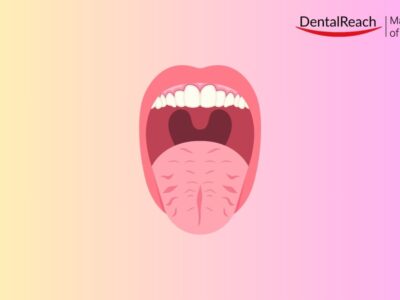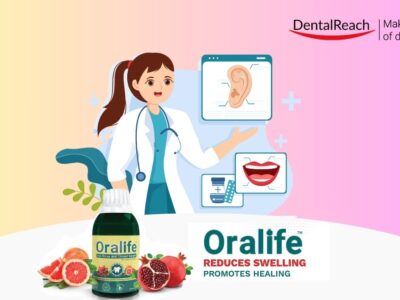Dentistry is not easy work; patients sometimes give dentists a roller-coaster ride and send them back into their preliminary learning. Therefore, dentistry is also defined as an art of artist, a doctor`s dilemma and thorough engineering of head and neck.
The whole context of diagnosis becomes a center reputation for a dentist when he or she encounters a peculiar case that is often latent in symptoms or is camouflaged by certain characteristics. Therefore, every dental professional is gifted with certain skills, which act as the most helpful aid in diagnosis, management and treatment plan of the patients. Following are the gifted assets of a dental professional.
Assessment
This is an important skill where the dentist starts assessing the patient from the moment, he or she enters the dental premises. This skill gives the dentist a brief idea in order to frame his case history and determine the economic background of any patient.
Often patients who have low nutritional diet suffer from hair colour loss and loose skin at a very young age. The prescription of medicines actually can be either synergistic or antagonist to this condition. Therefore, visual assessment of the patient becomes crucial.
A rough idea of patient body mass and features helps a dentist to take up any possible risks anticipated after or during the treatment. The second round of assessment is done based on the patient interaction and communication with the surrounding relatives.
Permutation and combination
Assessing the patient is followed by permutation and combination, in the background of details furnished by the patient. Patient’s best interest is taken into account, and an ideal treatment plan is suggested based on their expectations and affordability. In dental practice, for certain cases, there might be recent advancements and newer techniques.
Advanced dentistry often comes with high price but with the consent interest of the patient, a dentist is liable to produce a beautiful record of advanced dentistry for lifetime. The gift of knowledge helps a dentist to go ahead with permutations and combinations. But this parameter is also subjected to how much the practitioners updates himself with continued dental education.
Eye of an eagle
A dentist is gifted abundantly with an eagle`s eye, a quality which helps provides him to analyses not only the chief complaint of a patient but also updates them with associated problems, which he is unaware of.
A dental practitioners has a vision which can integrate information, differentiate the diagnosis and provide patients with an advanced information about the status of his medical wealth. Often cases reported with recurring lesions, secondary cancers or malignancy from other body tumours need a catch immediately through instincts.
In special cases, respecting to children with developmental deformities, the syndromes may present itself a bit challenging, but figuring out the various causative phenomena and analysing the contribution of the same in the current status quo is what dentists are gifted with. This gift develops with time and promotes itself from time to time with experience.
Detective analysis
Quite often it is a common observation among various patients whom they believe in concealing information, which are required to be furnished. In such cases, a detective mind works to save the practitioners, most of the time issues like unwanted pregnancies, use of contraceptives, abortions, smoking, cancer therapies, veneral diseases, and use of forbidden drugs are quite common. In such conditions, a thorough interrogation in case of doubt is required to prevent major issues arising in the future.
Motivation
Dental practitioners do not only limit himself or herself in treatment of diseases but also play a key role in the motivation sector of the treatment plan. Explaining the patient and encouraging him plays a major positive step in maintenance of the treatment and by extension the reputation of a dentist.
The ethical principle of doing well is a quality which every dental practitioner is gifted with. It is also termed as “Beneficence,” in the book of ethics.
Chameleon Tongue
A chameleon tongue is referred to as a tongue which is adapted to every patient. The belief needs no evidence to prove that every patient in dental practice is different, hence their management cannot be the same.
Sometimes, as dental practitioners we encounter with different people with anguish, fear, depression, anxiety and misguidance, hence the consultation cannot be same for everyone but the assessment of the patient and adapting a manner of interaction is truly a gift which every dentist has.
Veracity
Veracity or truthfulness is an ethical gift which practitioners receives right a beginning of his practice. Acquainting the patient with the actuality and building a truthful and ethical relationship with him are a quality of every dental practitioner.
A dentist in evidently builds a true and confidential relationship with a patient about his or her understanding of the disease and imparts the correct knowledge towards the same.
Concluding the discussion, the list of gifts which a dentist has gone on towards infinity but the role of instincts in determining, assessment and analysis of a dentist cannot be over ruled. These gifts are not only beneficial to the patients but also help a practitioners to establish a good market value with developing strategies.
References:
Sober peter:essentials of preventive and community dentistry, 3rd edition
George M Gluck and Warren M Morganstein:Jong’s community dental health,5th edition
Textbook of paedontic practise by Nikhil Marwah, 3rd Edition




















Comments